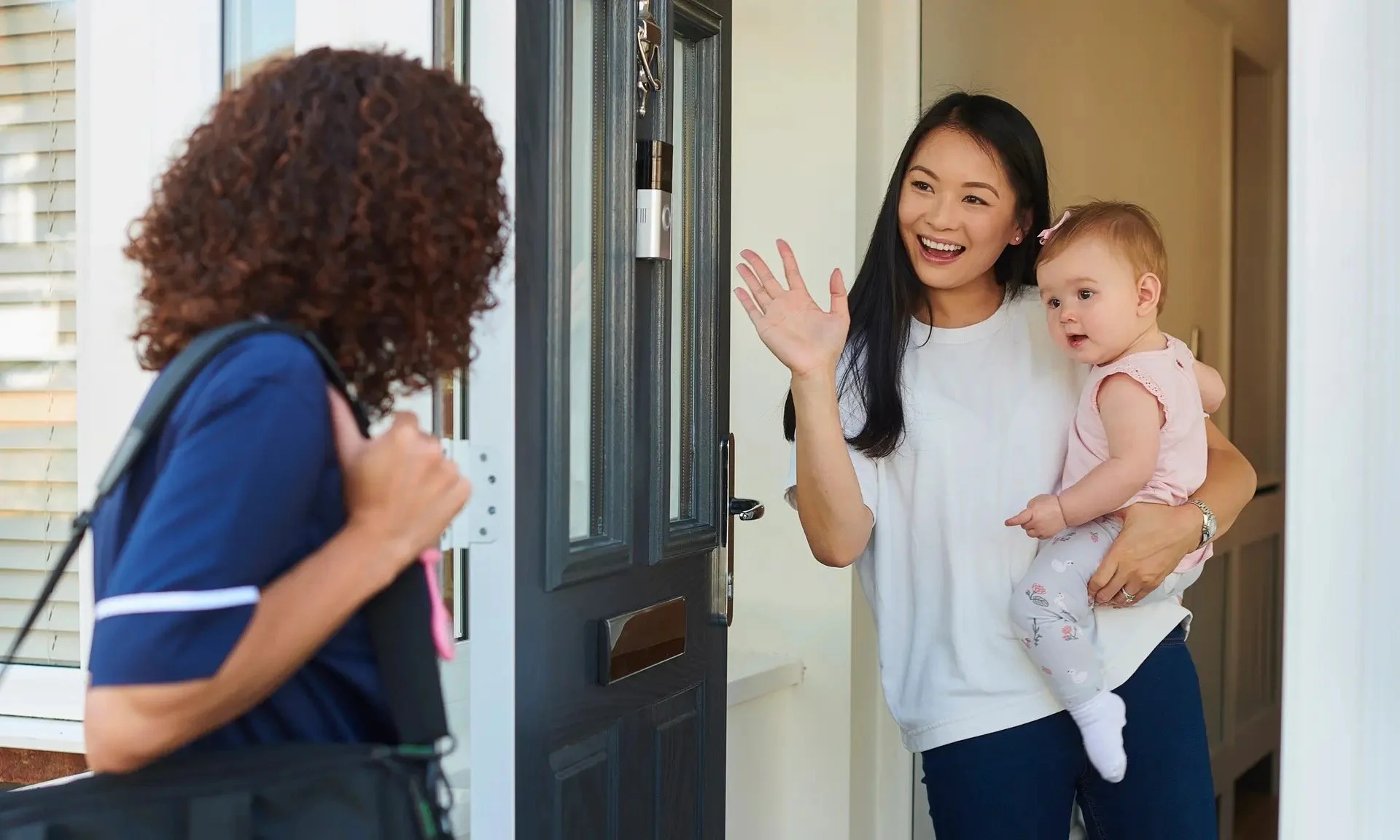Ready or Not: A Parent's Guide to Their First Babysitting Experience
(Written by Emily Thomas)
Let's be honest – the thought of leaving your little one with someone else for the first time is absolutely terrifying. Your heart races, your palms get sweaty, and your mind conjures up every possible scenario from minor meltdowns to full-scale disasters. You might even feel a little guilty for wanting some time away, or worry that something terrible will happen the moment you step out the door. If this sounds familiar, take a deep breath. You're not alone, and those feelings? Completely normal and shared by practically every parent who's ever walked this earth.
Every parent goes through this milestone, and while it never feels easy the first time, it does get better. Here's how to make that first babysitting experience as smooth as possible for everyone involved – including you, because your peace of mind matters just as much as your child's comfort.
It's Okay to Feel Nervous (Really, It Is!)
First things first: give yourself permission to feel anxious, worried, and maybe even a little panicky. You've been your child's primary caregiver since day one – you know their every cry, their favorite way to be soothed, and exactly how they like their sandwich cut. Of course handing over that responsibility feels overwhelming! You're not being dramatic; you're being human.
Some parents feel ready to leave their child with a sitter after a few weeks, while others need months or even longer before they're comfortable with the idea. Maybe your friend was out to dinner when her baby was six weeks old, but you're still hesitant at six months. There's no "right" timeline here, only what feels right for your family and your comfort level.
Here's something important to remember: wanting some time to yourself doesn't make you selfish – it makes you a normal person with normal needs. Whether it's for a date night with your partner, a long-overdue doctor's appointment, a work commitment, or honestly just a few hours to remember who you are outside of being "Mom" or "Dad," taking breaks actually makes you a better, more patient parent. You can't pour from an empty cup, and sometimes that cup needs refilling.
Start Small and Build Up
You wouldn't jump into the deep end of a pool without learning to swim first, right? The same logic applies to babysitting. Instead of planning that elaborate five-course anniversary dinner for your first outing, consider starting with shorter, lower-pressure trips that keep you close to home.
Try a quick grocery store run first – maybe 30 to 45 minutes where you can focus on actually reading labels instead of juggling a car seat and diaper bag. Or perhaps a coffee date with a friend you haven't seen since before the baby arrived. Even running a couple of errands without having to pack the entire nursery in your car can feel like a vacation.
These shorter trips serve multiple purposes. They help you get comfortable with the idea of being away while giving your child time to adjust to the babysitter's presence and style. Plus, if things don't go perfectly (and let's be realistic, they might not), you're not committed to being away for an entire evening. You can always come home, regroup, and try again another day.
Setting Your Babysitter (and Yourself) Up for Success
The key to a successful first babysitting experience is preparation – lots of it. Think of yourself as creating a detailed roadmap for your babysitter, because the more information they have, the more confident they'll feel, and the more at ease you'll be.
The Essentials Every Babysitter Needs:
Your contact information and exactly where you'll be (restaurant name, friend's address, etc.)
Emergency contacts (a family member, close friend, and your pediatrician's number)
Your child's routine in detail – feeding times, nap schedule, bedtime rituals, and any quirks they should know about
Location of everything: diapers, wipes, snacks, favorite comfort items, and basic first aid supplies
Any specific rules, preferences, or things that might help (like "she only drinks from the blue sippy cup" or "he needs his stuffed elephant to fall asleep")
WiFi password (because let's be real, they'll probably need it at some point)
A backup plan for common situations (what to do if bedtime becomes a battle, how to handle tears, etc.)
Pro tip: Write all this information down rather than trying to explain everything verbally while you're rushing to get dressed and out the door. When you're nervous, it's incredibly easy to forget important details, and your sitter will really appreciate having something concrete to reference. Consider creating a simple one-page sheet that you can reuse and update as needed.
Preparing Your Child and Managing Expectations
Even very young children are incredibly perceptive and can sense when something's different about the usual routine. Here are some gentle ways to help them (and you) adjust to this new experience:
If possible, introduce the babysitter before you actually need to leave. Maybe have them come over 30 minutes early so everyone can get acquainted while you're still there. Let them play together, read a book, or just chat while you finish getting ready. This way, when it's time for you to go, your child won't be meeting a complete stranger.
Keep your goodbye short and sweet, even though every instinct will tell you to linger and explain everything one more time. Children often take cues from our emotions, so the longer and more dramatic the goodbye, the more likely they are to get upset. A quick hug, a cheerful "I'll be back soon," and then actually leave (even if you want to peek through the window for just one more look).
Leave a comfort item like their favorite stuffed animal, blanket, or even a piece of your clothing that smells like you. These familiar objects can provide tremendous comfort when you're not around.
Most importantly, try to stick to familiar routines as much as possible. This isn't the time to introduce a new bedtime story or try a different brand of snacks. Keep things predictable and comfortable.
What About When Things Go Wrong?
Here's the thing that might surprise you: something probably will go "wrong," and that's completely okay. Maybe your baby will cry longer than usual, refuse their favorite snack, or have an epic diaper blowout. Maybe your toddler will test every boundary they've ever learned in the span of two hours. These aren't emergencies or disasters; they're just part of caring for children, and they happen to parents too.
Professional babysitters have seen it all before and know how to handle common situations like fussiness, minor scrapes, bedtime resistance, or even full-scale meltdowns. They'll contact you if there's a real concern that needs your attention, but try to resist the urge to call every 30 minutes to check in. (Trust me, your sitter will reach out if they truly need you, and constant check-ins can actually make both your child and the sitter more anxious.)
Remember, part of building this relationship is trusting your babysitter's judgment and letting them figure out their own rhythm with your child. Every caregiver brings something different to the table, and sometimes kids behave differently with different people – and that's perfectly normal too.
Managing Your Own Emotions During Your Time Away
Here's something no one really talks about: the hardest part might not be leaving – it might be actually relaxing and enjoying yourself once you're gone. It's completely normal to think about your child constantly during your first time away. Your mind might wander during dinner conversations, or you might find yourself mentally calculating how long you've been gone every few minutes.
Some strategies that can help you actually enjoy your time away:
Keep your phone on and easily accessible, but try not to stare at it constantly (easier said than done, I know)
Start with activities relatively close to home so you don't feel too far away
Remind yourself that your child is in capable, caring hands – you wouldn't have chosen this babysitter if you didn't trust them
Try to focus on the present moment rather than worrying about what might be happening at home
Give yourself permission to enjoy this time – you've earned it
If you find yourself getting too anxious, it's okay to send one text asking for an update. A good babysitter will understand and usually respond with a reassuring message and maybe even a cute photo.
Building Trust for Future Outings
That first babysitting experience is just the beginning of what will hopefully become a trusted relationship. Each positive experience builds confidence – both yours and your child's. Pay close attention to how your child responds to the babysitter when you return and how comfortable you feel with the care they provided.
A good babysitter will give you a brief but thorough recap when you return home. They might tell you what activities they enjoyed together, how eating and sleeping went, any funny things your child said or did, and maybe mention any challenges and how they handled them. This isn't just politeness – it's building the foundation of trust and communication that makes future outings so much easier.
Don't be surprised if your child seems extra clingy when you return, or if they act like they barely missed you at all. Both reactions are totally normal. Some children need extra cuddles and reassurance after a separation, while others might have had such a good time that they barely seem to notice that you were gone (which might sting a little, but it's actually a good sign!).
The Bottom Line
Leaving your child with a babysitter for the first time is genuinely a big step, and it's okay if it feels overwhelming, scary, or emotionally complicated. These feelings don't make you overprotective or helicopter-y – they make you a loving parent who cares deeply about their child's wellbeing.
But here's what I want you to remember: taking time for yourself, your relationships, your work, or your own mental health isn't just okay – it's important for your overall wellbeing and, ultimately, your ability to be the best parent you can be. You matter too, and your needs are valid.
That first time might not be perfect, and honestly, it probably won't be. Your child might cry, you might worry the entire time, or something might not go according to plan. That's completely fine and absolutely normal. What matters most is taking that first brave step. Each time will get a little easier, and before you know it, you'll be able to enjoy your time away while feeling confident that your little one is happy, safe, and well-cared for in your absence.
You've got this, even when it doesn't feel like you do. And remember, we're here to help make this transition as smooth and stress-free as possible for your entire family.

